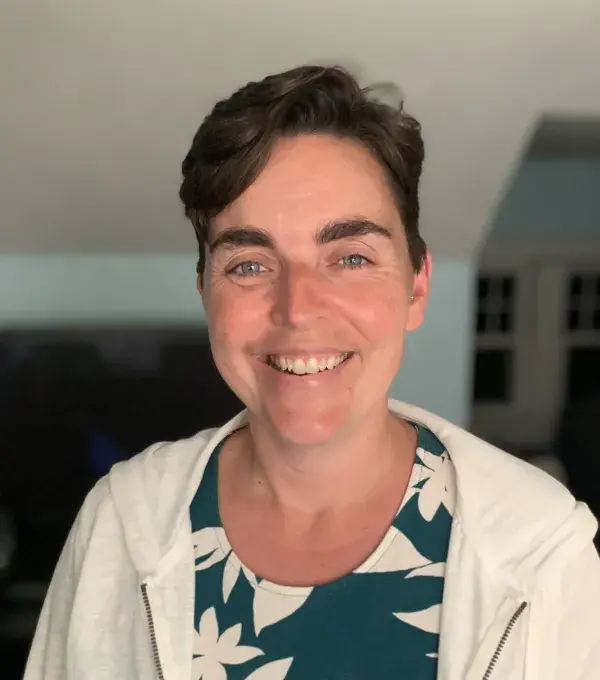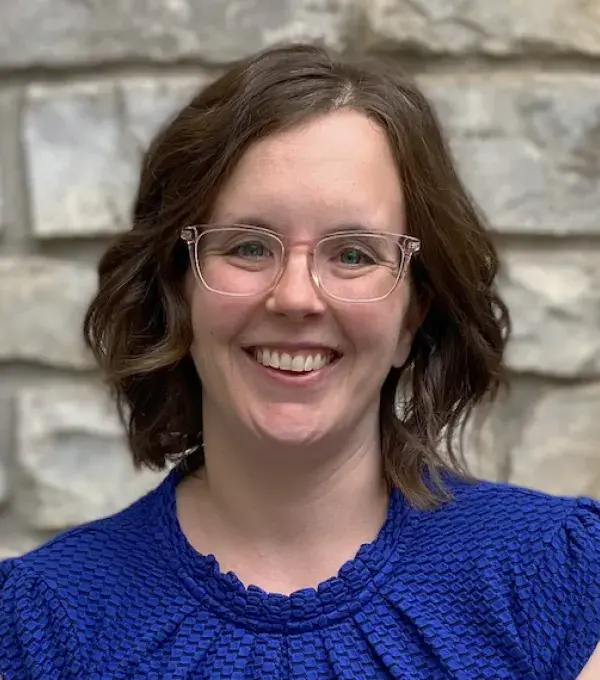
Schlegel Center for Service and Justice
Building a More Just World
The Schlegel Center for Service and Justice (SCSJ) invites students to engage with the Omaha community and beyond through meaningful service, reflection and advocacy. Rooted in a commitment to building a more just world, the SCSJ connects students with drop-in service, semester-long service, and Service & Justice Trips during fall and spring breaks. The SCSJ also provides opportunities for students to grow as leaders. Through partnerships with local organizations and a shared focus on faith and justice, the center fosters a community dedicated to learning from and working alongside others to create lasting change.
Our Mission
The SCSJ seeks to awaken hearts and lives and solidarity to build a more just world. We invite students to do this through:
- Service
- Community
- Reflection
- Building a more just world

Meet Our Namesake, Rev. John P. Schlegel, SJ
The Rev. John P. Schlegel, SJ, served as president of Creighton from 2000-2011, and his leadership illuminated service and justice as inherent in the University mission. As Father Schlegel put it, “I truly believe that the essence of a Jesuit education is reaching out and making the world a better place.” He regularly participated in direct service, prayed with students and initiated Project Homeless Connect.
In winter of 2014, Father Schlegel was diagnosed with inoperable pancreatic cancer. Father Schlegel shared that he was at peace with his condition and had “discovered what true freedom is.” He spent the last few months visiting with the people he connected with throughout the years and holding “pre-wake parties.” Fr. Schlegel died on November 15, 2015, in Omaha at the age of 72.
Father Schlegel described a “spark of generosity” present within each of us. He said he has “had a life that has been just incredibly rich.” Our lives are certainly rich in turn because of his generosity. In spring of 2015, the Creighton Center for Service and Justice became the John P. Schlegel, SJ, Center for Service and Justice. We could not be more honored to call Father Schlegel our namesake and look forward to living out his legacy of service and justice.


Discovery Through Reflection
No matter how students choose to become involved, reflection is key to the SCSJ mission.
The praxis spiral, shown here, is a representation of “reflection in action.” The people around the spiral are a representation of both our togetherness as a national and global community and the fact that we are social creatures who need each other’s care and love to sustain us. In the tradition of Catholic social thought, we are always “individuals in community.” The spiral represents the cycle of having an experience and reflecting on that experience, deepening with each rotation. At the SCSJ, we understand that experience, reflection and action are part of the same process, one informing the other.
Our Team

Jenna Espinal
- Program Coordinator for Local Community Engagement
- 402.280.4643
- View Profile

Cristina Hiddleston
- Assistant Director
- 402.280.1295
- View Profile

Becca Huju
- Assistant Director
- 402.280.1419
- View Profile

Kelly Tadeo Orbik
- Associate Director
- 402.280.1293
- View Profile
Support Our Work
Your gift makes a difference in our mission. Throughout the years, the SCSJ has had extremely generous friends and alumni of Service & Justice Trips who have been amazing supporters of the program. Fundraising efforts help the SCSJ give out over $25,000 in need-based and leadership scholarships each year, as well as subsidize all the trips to keep them affordable for everyone. Every donation, from the largest to the smallest, is helpful in keeping alive the 40-year legacy of the Service & Justice Trips program, our Ignatian Advocacy and Local Community Engagement.
Generosity in Action
$800 – Cost to rent a 12-passenger van for a Service & Justice Trip group
$450 – Cost to rent a minivan for a Service & Justice Trip group
$330 – Price for a full-week Service & Justice Trip participant
$230 – Price for a half-week Service & Justice Trip participant
$100 – Average leadership scholarship for Service & Justice Trip coordinator
$25 – Cost to print five Service & Justice Trip coordinator binders
$5 – Cost for the candle made in the DR that the group uses during reflection each night
Please consider supporting the SCSJ’s programs by making a 100% tax-deductible gift. Any amount is greatly appreciated.
You can donate via our secure donation site or by mail:
Make check payable to “Creighton University” and designate “SCSJ (program designation if desired)” on the memo line and send to:
Creighton University
PO Box 30282
Omaha, NE 68103-1382
Thank you for your support!
Contact Us
scsj@creighton.edu
402.280.1290
Upper Brandeis Hall, Suite 202





